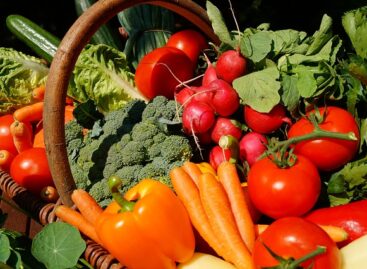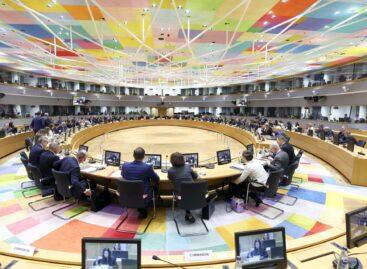Focus on young farmers and food security – seminar in Brussels
Empowering young farmers, supporting generational change, the role of short food chains and the future of the Common Agricultural Policy were the focus of a seminar in Brussels, organised under the CAPambition programme on 10 June 2025.
 Brussels hosted the thematic seminar of the project “CAPambition – Informative measures for a sustainable future in agriculture”, coordinated by the Harghita County Development Agency with the participation of MAGOSZ, the Székely Farmers’ Association and Members of the European Parliament. The event discussed the situation of young farmers, the opportunities for agricultural advocacy, the economic and social role of short food chains and the challenges of sustainability.
Brussels hosted the thematic seminar of the project “CAPambition – Informative measures for a sustainable future in agriculture”, coordinated by the Harghita County Development Agency with the participation of MAGOSZ, the Székely Farmers’ Association and Members of the European Parliament. The event discussed the situation of young farmers, the opportunities for agricultural advocacy, the economic and social role of short food chains and the challenges of sustainability.
Joint action for European agriculture
The event was opened by a press conference, at which, among others, MEPs Loránt Vincze and Gyula Winkler, Árpád Cilip, Director of the Harghita County Development Agency, Szidónia Bartis, Project Manager, Vivien Horváth (Bread of Hungarians Program), as well as representatives of farmer organizations and the National Chamber of Agriculture spoke. The participants emphasized that the basis of sustainable agriculture is the involvement of young producers and the strengthening of joint EU action.
Four panels, four foci
Four thematic panel discussions took place during the seminar. The first examined the possibilities of advocacy within the current CAP framework. Representatives of Copa-Cogeca, NAK, MAGOSZ and the Székely Farmers’ Associations agreed that food safety is a strategic European issue, therefore the protection of farmers requires coordinated advocacy.
The second session focused on the challenges of young farmers: access to land, profitability and effective incentives. Hungarian and Romanian experts from the Commission highlighted the need for Member States’ CAP Strategic Plans that truly reflect the needs of young farmers.
The third panel analysed the role of local products, short food chains and community support. Participants demonstrated through examples how these can strengthen security of supply and social cohesion.
In the final session, young farmers shared their practical experiences on climate change, technological innovations and administrative difficulties. Participants agreed that diversified farming, direct consumer relations and targeted advice could be key.
Related news
The guarantee of support for farmers is the preservation of an independent, autonomous agricultural policy
🎧 Hallgasd a cikket: Lejátszás Szünet Folytatás Leállítás Nyelv: Auto…
Read more >We will protect the safety of Hungarian food by all means.
🎧 Hallgasd a cikket: Lejátszás Szünet Folytatás Leállítás Nyelv: Auto…
Read more >Related news
A stable compass in the Hungarian FMCG sector for 20 years
🎧 Hallgasd a cikket: Lejátszás Szünet Folytatás Leállítás Nyelv: Auto…
Read more >








